The Restoration of All Things
Jan 14, 2021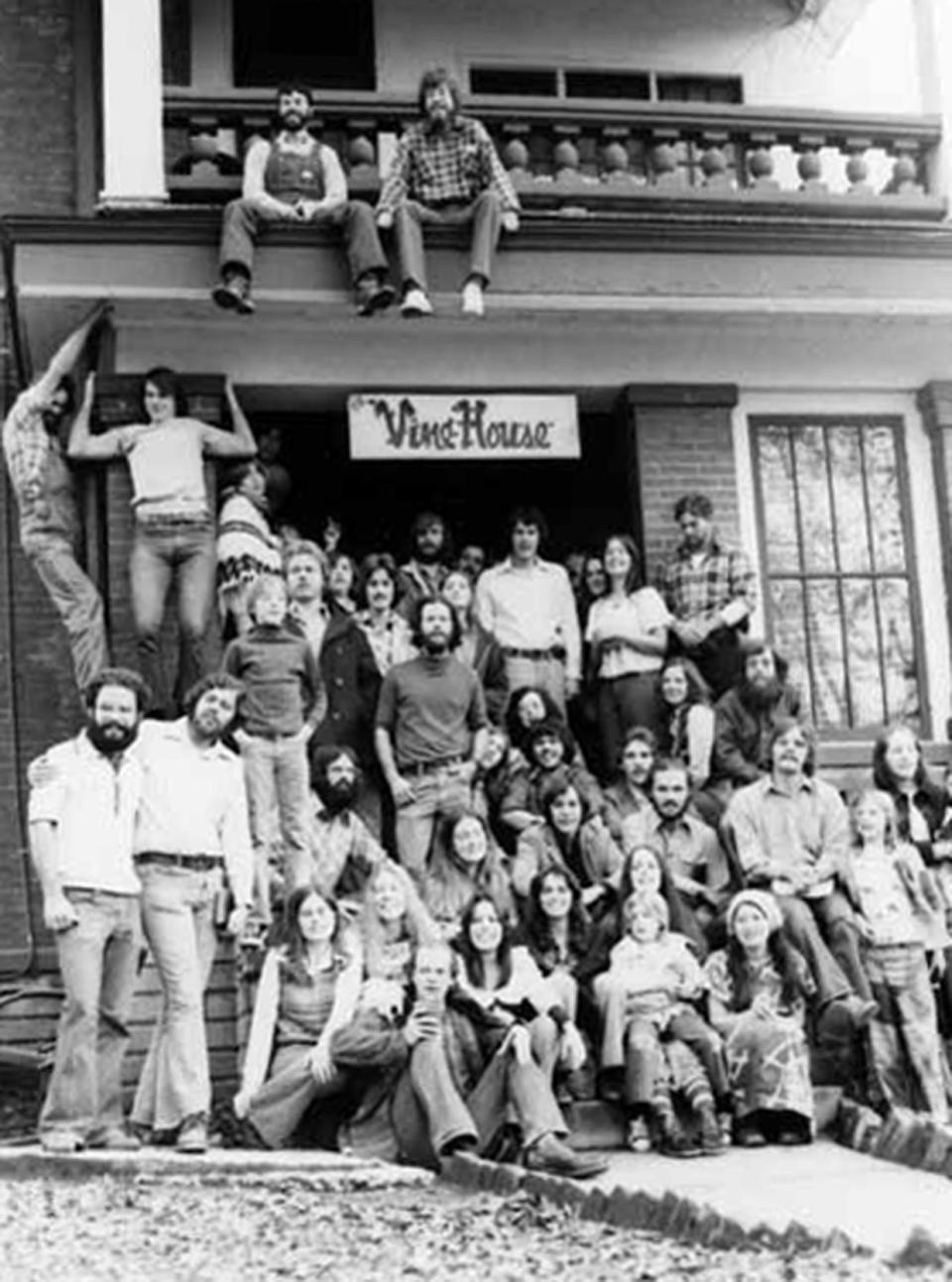
Father and Son
Elbert Eugene Spriggs, Sr. lived in Chattanooga, Tennessee. A factory worker and scoutmaster, Mr. Spriggs was well respected by all who knew him. His strong religious beliefs were reflected in a life of good deeds. In 1937 a son was born to him, Elbert, Jr., whom he called by the nickname “Gene.” Mr. Spriggs was delighted to have a son and hoped that his namesake would grow up to follow in his footsteps.
Gene loved and respected his father and wanted to please him. But as he grew, the pressures of his peers proved too much for him, and by high school he found himself doing things he knew were wrong. Though others might have smiled and said, “Kids will be kids,” Gene’s father never approved of the wild parties, smoking, and drinking common to teenagers. And Gene’s popularity as a good football player had put him right in the center of the teenage scene.
Outwardly Gene seemed to prosper, being voted May King by his peers and winning a football scholarship to the university. Because of how he was raised, however, his conscience was troubled. He was failing to live up to the strong Christian standards his father had instilled into him. This sense of guilt caused him to enter into a marriage at nineteen before he was prepared for the responsibilities of such a commitment. This marriage was very short-lived.
When Gene graduated from college, he found himself conscripted to serve in the US Army. Because of his university education he was assigned to do psychological testing for the new recruits. He served his time in the Army and was discharged after being named “best soldier” in his unit.
Gene pursued his chosen profession as a school teacher and guidance counselor. Once again he married, hoping this time to find a lasting relationship. After a few years of teaching in high school, he was offered a job in management by Dixie Yarns, the carpet manufacturer his father had worked for all his life. The company was opening two new plants, and Gene was given the responsibility of hiring the hundreds of workers needed to run the facilities. For several years Gene was the personnel manager of the company. There he was well respected and excelled in his work, even being chosen as secretary for the Rotary Club.
But the principles that his father had put into Gene still caused him to suffer, and the choices he made in order to fit in to the “fast lane” of the executive lifestyle caused him great inner conflict. His second marriage came to an end.
Gene could not find peace in his conscience as a business executive, so he took a job offer which would give him opportunity to see the world. He became a tour director for a large travel company. But just like the executive scene, the carefree lifestyle of the tourist business also caused Gene inner conflict.
The death of his father affected Gene profoundly, as well. On his deathbed, Mr. Spriggs urged Gene to “give his life to God.” Without really understanding what it would mean, he promised his father that he would. But Gene was still caught up in the life of the turbulent 60’s, and once again he entered a relationship with a woman, looking for happiness. Not comfortable with the loose morality society was promoting, he married her. But his life was still in upheaval, and like so many people at the time, he was looking for a change.
When the new marriage had problems, Gene decided to visit relatives in California and look for a new line of work there. On the way to California he stopped in Alabama to visit a friend who owned a carnival. When his friend asked him to stay for a few days and run one of his concessions, Gene accepted the offer just for fun. (Ironically, this brief fling in a friend’s carnival is the one detail that most media reports have seized upon and distorted into the label “former carnival barker.” It speaks volumes about the motives of both the reporters and their “sources” that Gene is not called a “former manufacturing executive” or “former high school teacher” or “former Rotary Club secretary.”)
That short stint in the carnival (a couple of weeks) was very significant, however. It was here that Gene finally came to grips with the words his dying father spoke while holding his hand: “Get your heart right with God, Gene!” For here he faced the human degradation of people who were not cultured enough to hide their wretched condition. Walking down the center of the midway, Gene saw vividly the depths to which mankind had sunk. He looked at all the freaks, the cheating, the immorality, and the mockery rising up on both sides of him, and it broke his heart. In his distress he heard a question deep inside his soul, “Is this why I created you?” It was a very disturbing question. It was not just a personal question but an earthshaking question, with implications for all of mankind. The question was overwhelming, and Gene was unable to answer.
"Is This Why I Created You?" It was a very disturbing question.
Gene walked out of that carnival and did not return. He went to his hotel room and got down on his knees, crying out to the One who had asked him that question. He told His Creator that he knew the way he was living was not what he had been created for. He expressed deep sorrow for how he had let his life run out of control since he had been a teenager. He did not know what he had been created to do, but he wanted to be saved from the sins that kept him from doing it. And he wanted others to find out what they were created for, too.
He was thirty-three years old. This new turn in his life caused great strain on his new marriage. The woman had no interest in living with someone preoccupied with such questions as what people were created for. He was not the same man she had married, and she wanted nothing to do with him. The marriage ended.
Gene continued his trip to California, but with a whole new motivation. All he wanted was to surrender to his Creator and do whatever he had been created for.
Jesus Freaks
In California the Jesus Movement of the early 70’s was in full swing. There was an excitement there which Gene had never seen in all of his religious childhood. It was easy to get involved — praising the Lord, witnessing on the streets, and passing out Jesus tracts along with many others. He volunteered to work in a rescue mission, met many Christian celebrities, and developed a special burden for alienated youth. But soon he realized that most people in the movement did not have a deep conviction in their heart, but were just caught up in a fad. Despite the popular movement’s outward zeal, which Gene so admired, he could see that their fire was only a fading ember. Already the seemingly radical changes in people’s lives were beginning to vanish, and everything was starting to return to the status quo of rote religion.
In the midst of these circumstances, during a stroll on the California beach, Gene came face to face with the scriptural truth of John 15:5: “I am the vine, you are the branches; he who abides in Me, and I in him, he bears much fruit; for apart from Me you can do nothing.” If his life was to mean anything, if he was going to actually do what he had been created for, it could only come about through obeying and depending on his Savior — and teaching others to do the same.
Eventually Gene left California and headed east. He had heard that the Rocky Mountains were full of people who had dropped out of traditional lifestyles and were trying to find peace. Perhaps there he would find people who wanted to hear the good news of the salvation which he had found in Jesus, the Savior of the world.
A Radical Atheist
In a small, unspoiled mountain village lived a young woman named Marsha. Unlike Gene, she had been raised knowing nothing about the Bible and could count on one hand the times she had even been in a church building. Her college philosophy courses, combined with the religious hypocrisy she had seen all her life, had convinced her there was no God at all. She didn’t think that Christians really believed what they said about having a “personal relationship with God” anyway, because she found their lives full of the same ambitions, pleasures, empty expressions, and mundane daily routines as her own. If there really were a God and someone knew Him, that person would be different!
The emptiness of college and the shallow relationships there had caused her to drop out and move to that small village, looking for love and peace and a life that was closer to nature. There she had found others who seemed to want the same thing — to be real and really live. But before long her friends traded in their ideals for a subtle conformity. Passion for justice and love seemed to be going out of style.
When Gene showed up in the village, she admired his passion but was offended at his Bible. Yet when he read to her about the love of this man called Jesus and the high standard of justice His words called for, she was intrigued. If people did what this man said, it would result in a society that was everything Marsha had always dreamed of. She barraged Gene with challenging questions. Why had she never seen these words lived out? Why did Christians do little more than dress up in fancy clothes and meet in elaborate buildings, even in countries racked with poverty? For these questions Gene had no answers. All he knew was that the Son of God had saved him, and would do the same for anyone who sincerely called out to Him. It wasn’t the Savior’s fault that people weren’t obeying His words.
Marsha couldn’t ignore the truth of what she was hearing. Amazingly, this confirmed atheist put her trust in the Son of God, for she had become convinced that He was mankind’s only hope. Soon afterward, she and Gene were married — joined in a covenant that has withstood the test of time for over four decades.
The Last Place on Earth
Even though Gene had a new life and was married to a woman who shared his convictions, he knew that many things from his old life in Tennessee were unresolved. And he could not be devoted to the purpose God had called him to until his conscience was completely clear. Facing his past in Chattanooga was painful for Gene, and the south was the last place on earth that Marsha wanted to be, steeped as she was in the pseudo-liberal prejudices of her California upbringing. But their lives no longer belonged to them. They were living for their Savior now, so off they went to Gene’s home town.
They both got jobs there, and soon all the debts were paid and (as much as possible) all the wrongs were righted. During this time they attended services at many of the denominational churches, where their “zeal for the Lord” attracted much attention. They also opened their home to anyone who wanted to come and learn about their Savior. Many young people came to meetings in their living room just to sing and talk about Jesus. Because of the things they heard and the love they experienced there, many teenagers quit taking drugs. People hailed their “ministry” as “a great work.” Every Sunday they would bring a truckload of young people to the different churches they attended. The movement was popular, and everyone was happy.
The Light Brigade
The little brown house on Ringgold Road where Gene and Marsha lived became known as the Light House, and the little band of believers began sharing their faith through an “underground” paper called the Light Brigade Freepaper. They were excited about experiencing love, a clean conscience, and a new life. Whenever there was a concert or other public gathering, the Light Brigade would be there handing out papers.
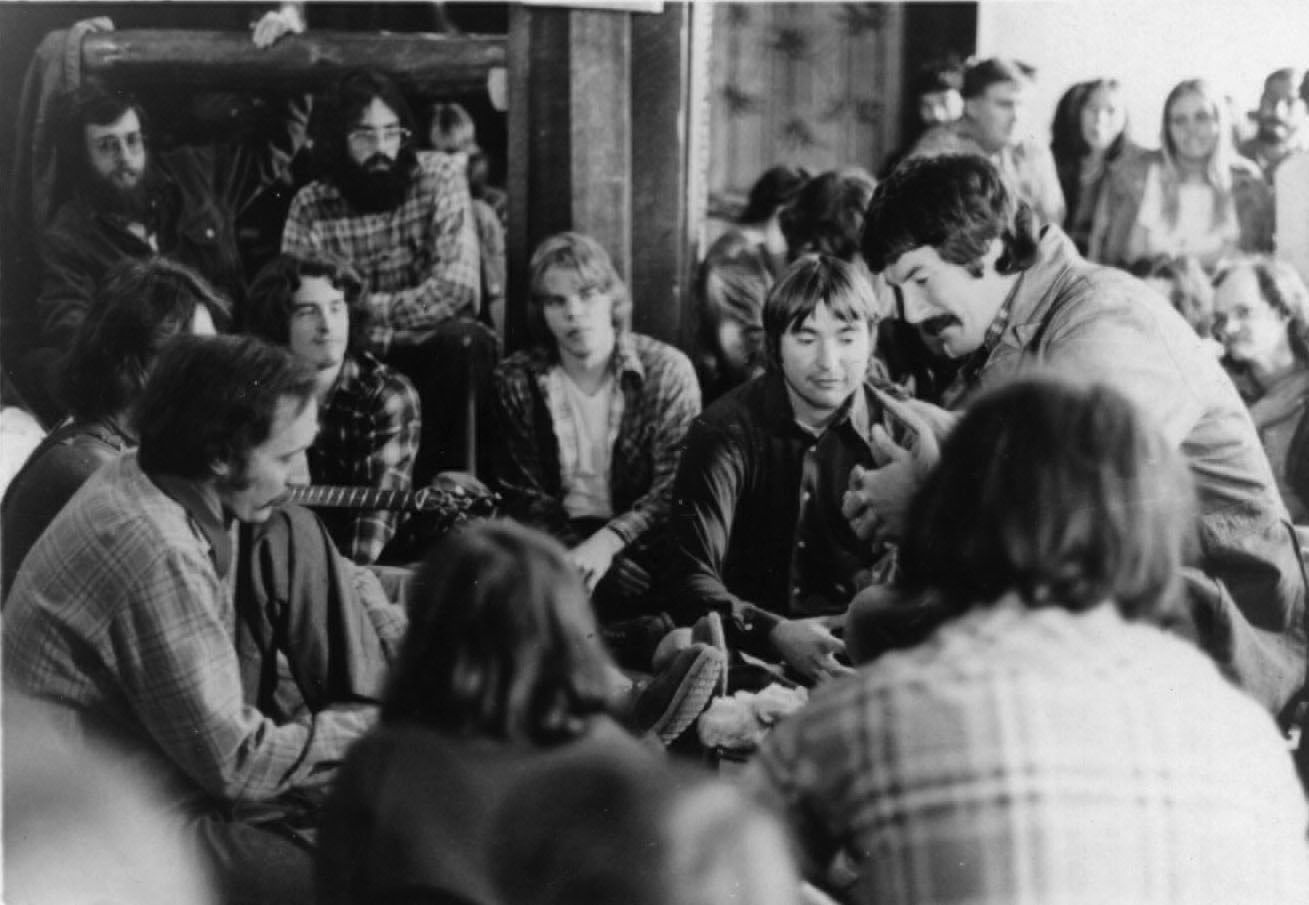
The response was amazing. Teenagers showed up at all hours of the day and night. Some had nowhere else to go and needed a place to stay. Gene and Marsha wouldn’t have time to care for these people if they continued working their regular jobs. And they needed a bigger house so they could fit everybody in. But how would they make ends meet? Asking for donations was out of the question. The Bible taught them to do “honest work with their own hands to have something to share with those in need.” That’s just what they wanted to do — work together and share everything they had with each other.
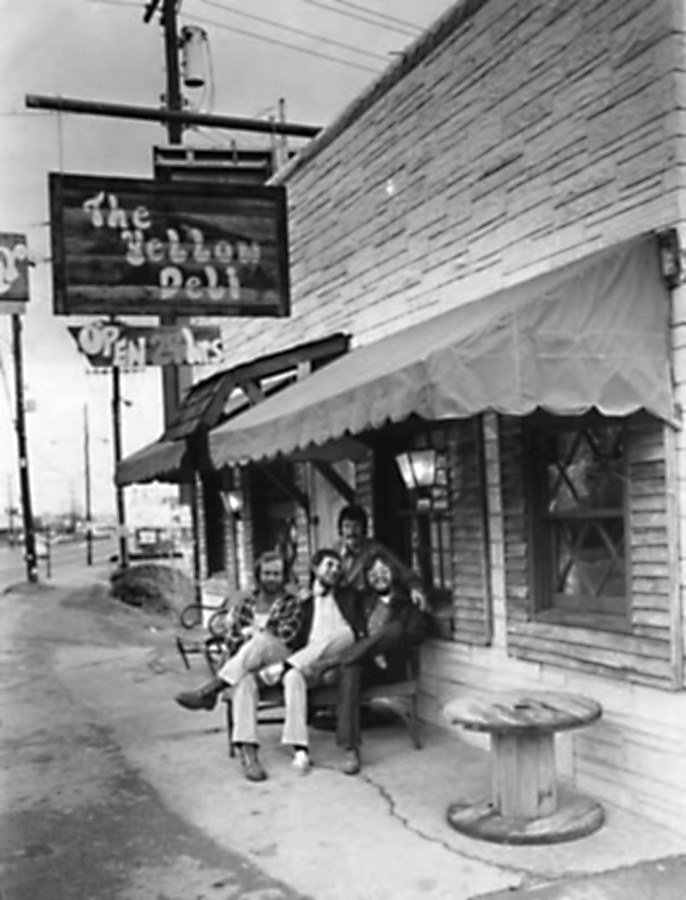
Thus was born the “Yellow Deli” restaurant. They did yard work to get a few dollars together and rented a small building. With a couple of months of renovation and a coat of bright yellow paint, the cozy little sandwich shop was ready to open. It was a place where they could work for a living and still be together, learning all about their Savior and His teachings. And anyone who came in to get a meal could also get a glimpse of the new life they had found — the result of being forgiven and having the Holy Spirit living inside. On the menu they printed, “Our specialty is the fruit of the Spirit. Why not ask?”
People loved to come in and talk and sit for hours in this restaurant. It was a peaceful place, not full of the usual tense atmosphere of a typical sandwich shop. The local papers did big full-color stories about them, giving glowing reports of their work and their menu.
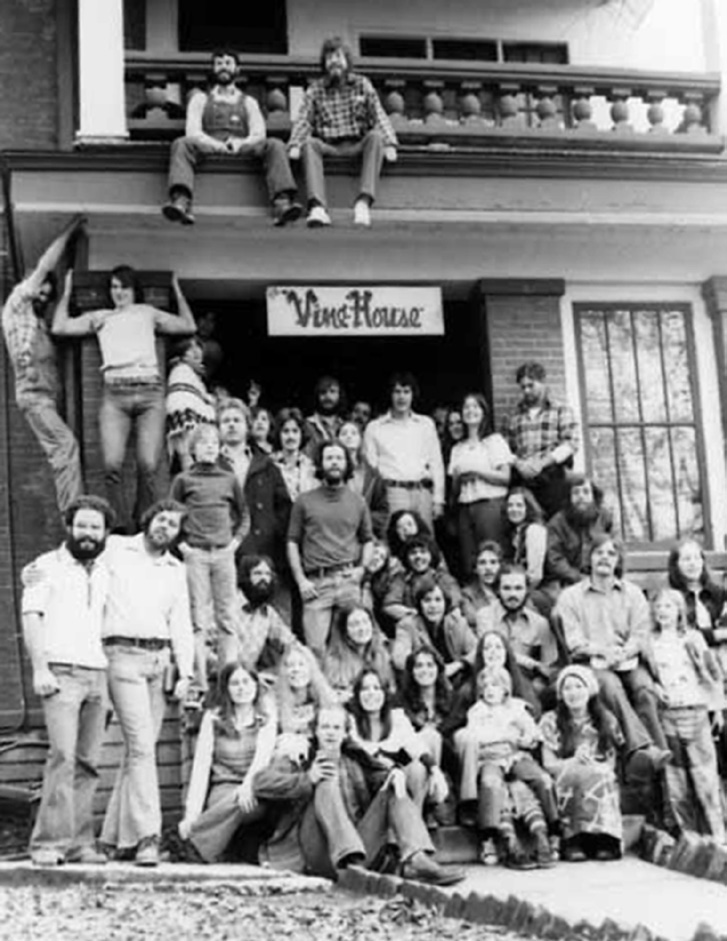
At the same time, for a reasonable price they were able to find a big house in need of much repair, which they fixed up and began living in. It just happened to be on Vine Street. The name reminded Gene of the Bible verse he had come to know so well: “I am the vine, you are the branches… apart from Me you can do nothing,” so they called their new home “The Vine House.”
They still attended services at various churches, but problems were beginning to surface. Some people in the congregations complained about the “hippies” and Black people who were invading their respectable gatherings. And it was very hard for Gene and Marsha to find fancy enough Sunday clothes to outfit everyone who stayed with them. The young disciples were starting to ask difficult questions, too. They wondered how these people that they went to church with could be so wealthy when there were so many poor people around. And why did they act so cold and distant? Hadn’t Gene told them that Christians were called to live a life of selfless love for their neighbor?
Then one Sunday it all came to a head. The church they were attending cancelled their evening service because the Super Bowl was going to be on TV. Even though the preacher had many good things to say in his sermons, it didn’t seem to make a difference in the lives of the people. Their priorities were not affected.
From that day on, the little band of disciples stopped attending services. Instead they just went to a nearby park on Sunday mornings to sing and worship. After all, the Bible never said there had to be a preacher in a pulpit and everyone else listening quietly in pews. On the contrary, 1 Corinthians 14 taught that everyone should bring something to say or a song to sing.
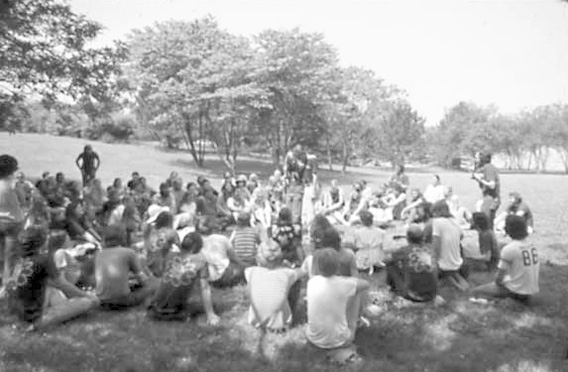
That choice was very significant. When they stopped “going to church” and started being the church something wonderful began to happen. They began discovering who they were, and what God wanted to happen on the earth. Verses in the Bible that they hadn’t really noticed before began to stand out. With excitement they discovered that the disciples in the first century A.D. lived just like they were living. Acts 2:44 said, “All who believed were together and had all things in common.” And Acts 4:32 was even clearer: “All the believers were one in heart and mind. No one claimed that any of his possessions was his own, but they shared everything they had.”
The Vine Christian Community
From that time on opponents rose up against the little band of disciples from the ranks of the “religious.” No longer was this group just a nice little ministry to young people that made up for how the churches were failing to reach the youth. Now they had become an independent entity, The Vine Christian Community. They weren’t asking the denominational churches for donations, teachings, seminary training, or approval. They were paying their own way and raising up their own leaders. People who hadn’t wanted them at their churches in the first place were now offended that they had stopped coming. The Community members didn’t really understand what was going on and tried to make peace, but they found all their efforts futile. When they tried to explain that, according to the Bible, they were just doing what was normal for believers, it only made matters worse. “You’re saying that you’re the only ones!” was the most common response. Lies and slanderous rumors began to surface about them. Suddenly they weren’t so popular any more.
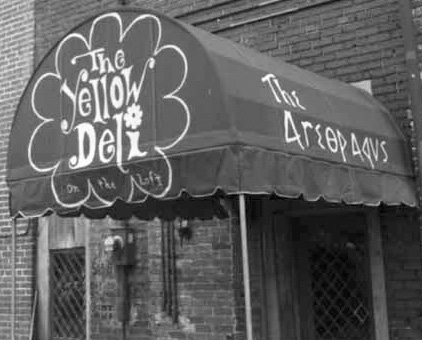
All this time, however, their numbers were growing. They had to buy another house to accommodate all the people who came to live and work with them. And when a disciple from a nearby town wanted a Yellow Deli back where he came from, they moved people there, got a house, and found a building for the restaurant. Then came more houses and more delis. Within four or five years time they were running seven delis in Chattanooga and the surrounding area and occupied a dozen large houses. And they still handled all of their assets as they had at first — voluntarily sharing all that they had.
Of course, they had to keep a careful accounting of the income their businesses earned and report it all to the IRS. And there were sales taxes and property taxes to keep up with, for their Master had commanded them to pay their fair share of taxes. But within their homes, they lived like one big, happy family, looking out for each other’s needs.
During this time a core of sincere, wholehearted disciples was forming within their ranks. It was no longer “just a group of kids who loved Jesus.” What they were doing wasn’t popular any more. Difficult times tested everyone’s devotion, but those who remained proved to be motivated by a true conviction in their heart.
Birds of Every Feather
Many who entered the Community during those early years were there only for a season. But at the time of this writing — nearly 40 years later — many of those early disciples remain and are still devoted to their Savior. Far from being a bunch of like-minded individuals from similar backgrounds, looking for a nice intentional community that suited them, they were about as diverse a group as you could imagine.
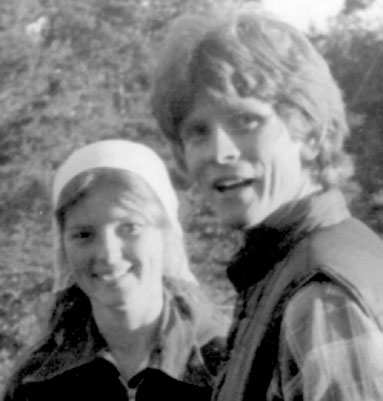 Joy and Cindy both came from the high school where Gene taught, but the vast majority came from outside the Chattanooga area — as far north as Vermont, as far west as California, as far south as Brazil, and as far east as India. John, for example, had dropped out of Yale and taken off on foot, determined to find somewhere that the life he read about in the Bible was being lived. After walking seven hundred miles, he met a young man from the Vine House who asked him if he needed a place to stay. In all, around a dozen members had just been traveling around the country, not even knowing the Community existed. When they came into the Chattanooga area, they learned that the “Vine House” people offered hospitality to strangers. What they found there convinced them to stay for the rest of their lives.
Joy and Cindy both came from the high school where Gene taught, but the vast majority came from outside the Chattanooga area — as far north as Vermont, as far west as California, as far south as Brazil, and as far east as India. John, for example, had dropped out of Yale and taken off on foot, determined to find somewhere that the life he read about in the Bible was being lived. After walking seven hundred miles, he met a young man from the Vine House who asked him if he needed a place to stay. In all, around a dozen members had just been traveling around the country, not even knowing the Community existed. When they came into the Chattanooga area, they learned that the “Vine House” people offered hospitality to strangers. What they found there convinced them to stay for the rest of their lives.
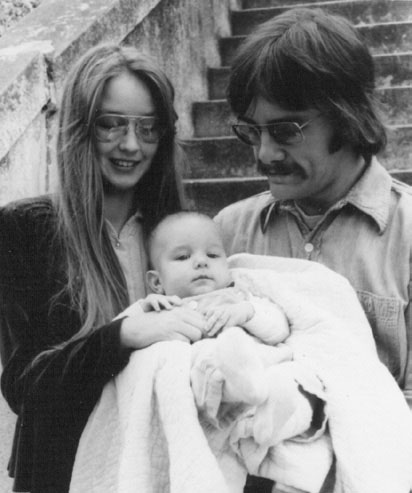 Connie, Al, and Liz were all locals who became interested in being disciples when they were 16 or younger. Liz got permission from her parents to live in the Community right away. The others joined after they had turned 18.
Connie, Al, and Liz were all locals who became interested in being disciples when they were 16 or younger. Liz got permission from her parents to live in the Community right away. The others joined after they had turned 18.
Gary, on the other hand, was a computer systems analyst in his mid-thirties, and Charles was an upwardly mobile Black plant manager. Eddie was a successful builder in Florida, Pat a high school teacher, and Kathy the music director for a church. What caused them to abandon their careers and wash dishes in the Yellow Deli was the same thing that fascinated the younger disciples. They heard the words of the Son of God presented with clarity and authority and saw a demonstration of His love in real human beings. They wanted to belong to Him and be like Him more than anything on earth. 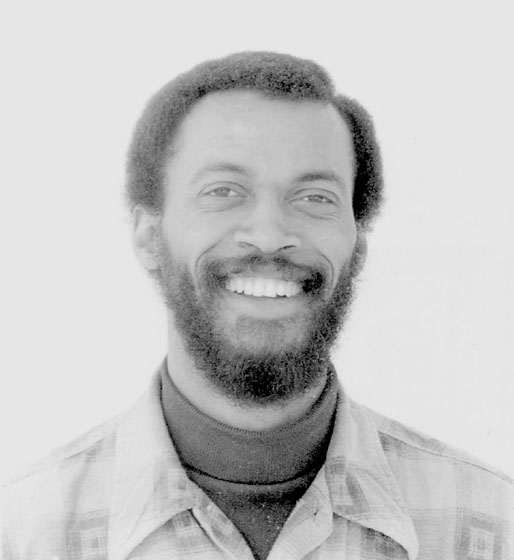 It was worth more to John than his career as a popular Black radio announcer. It was worth more to David than the job offer he had dreamed of — teaching on an Indian reservation.
It was worth more to John than his career as a popular Black radio announcer. It was worth more to David than the job offer he had dreamed of — teaching on an Indian reservation.
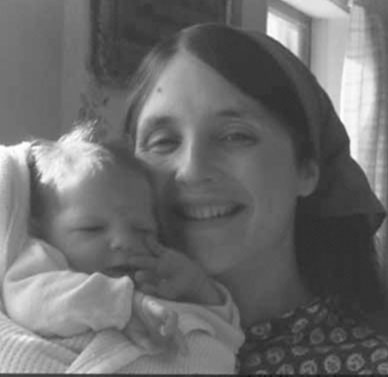 Danny, Linda, Bob, and Deb had attended a Christian college in nearby Dayton, Tennessee. Margo, Michael, Emily, and Rose had lived in a hippie commune in Altamont, a little farther away. They all moved into the community around the same time. In order for people from such different backgrounds to get along in the “pressure cooker” of community life, they had to forget the past and stop living according to their natural temperaments.
Danny, Linda, Bob, and Deb had attended a Christian college in nearby Dayton, Tennessee. Margo, Michael, Emily, and Rose had lived in a hippie commune in Altamont, a little farther away. They all moved into the community around the same time. In order for people from such different backgrounds to get along in the “pressure cooker” of community life, they had to forget the past and stop living according to their natural temperaments.
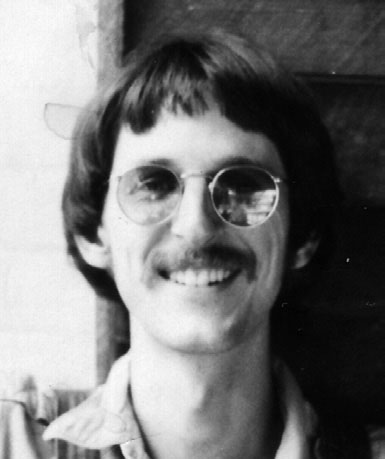 But something caused those “straight-laced” Christian types to love Dicky, whose background was drugs and Transcendental Meditation. Something broke down the barriers between Robert, the graduate of an ivy league university, and Joe, the son of a black sharecropper, who dropped out of third grade to work in the fields.
But something caused those “straight-laced” Christian types to love Dicky, whose background was drugs and Transcendental Meditation. Something broke down the barriers between Robert, the graduate of an ivy league university, and Joe, the son of a black sharecropper, who dropped out of third grade to work in the fields.
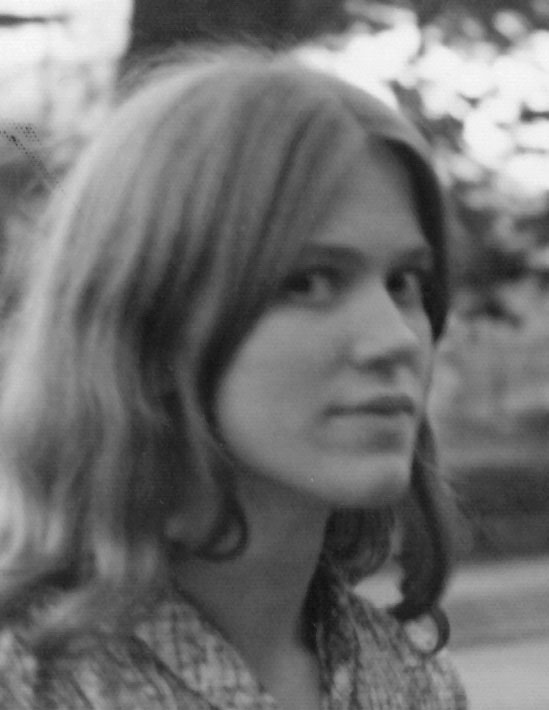 When Bill’s college sent him to live in the Community to research his Master’s thesis on Christian communal life, he found something. And Artie, a drifter injured in a motorcycle accident, who could barely walk or utter a complete sentence, found the same thing. Neither one ever left.
When Bill’s college sent him to live in the Community to research his Master’s thesis on Christian communal life, he found something. And Artie, a drifter injured in a motorcycle accident, who could barely walk or utter a complete sentence, found the same thing. Neither one ever left.
What they found also caused José and Gayle to leave behind their ministry to Latino factory workers. It caused Alan and Susan to become disciples in spite of the ban that their ultra-conservative Bible college had put on the Community. It even caused Kirsten, Thomas, and Rebecca to endure kidnapping and deprogramming.
For them, a passage in the Bible that Gene would often read summed up what they had found:
Love is very patient and kind, never jealous or envious, never boastful or proud, never haughty or selfish or rude. Love does not demand its own way. It is not irritable or touchy. It does not hold grudges and will hardly even notice when others do it wrong. It is never glad about injustice, but always rejoices whenever truth wins out. If you love someone you will be loyal to him no matter what the cost. You will always believe in him, always expect the best of him, and always stand your ground in defending him.” (1 Corinthians 13:4-7, Living Bible)
The Northeast Kingdom
Jay was born and raised in Massachusetts. When he drove his Mustang down south to visit his fiancée’s brother and look for a summer job, he thought he might encounter a different culture. He had no idea he was going to find a whole new life. He also had no idea who was going to share that life with him.
When he discovered the little Community on Vine Street in Chattanooga, he wanted to tell everyone about it. So, on his trip back home to get married, he tried to explain what he had found. He even played a cassette tape of his new friends singing songs about their Savior. But no one seemed to be impressed, and really, it wasn’t the music that had captured Jay’s heart. It was the relationships.
Because she loved him, Jay’s new wife, Annette, left her relatives in northern Vermont to live in the south with people she hardly knew. It didn’t take long, though, for her to develop her own attachments to the people in the Community. And, the more she and Jay talked to the folks back in Vermont about their new life, the more curious they became. Over the space of the next few years, word spread about the Community that Jay and Annette were living in.
Annette’s sister Jackie and her husband Andy, the town Water Commissioner, had been having prayer meetings with Richard, the local TV repairman, and two woodsmen, Steve and Gene, and their wives. They also knew two men in a nearby village, Maurice, a deliveryman, and Guy, the owner of a small restaurant, who had decided that God wanted their families to share their housing and finances with each other. There were others, too, who were thinking of opening a Christian retreat center together in the area. They all wanted to know about the communal life that Jay and Annette were involved in. Couldn’t someone from Chattanooga come up and be their pastor and teach them about community life? They wouldn’t be able to pay very much…
No, the Community in Chattanooga replied, they had no teachers for hire. But they would get a house in the little village of Island Pond and move three couples there at their own expense, to demonstrate the life that they had been given. If the local Vermont families wanted to join them in living that life, they would be welcome to do so.
They did join, around 50 of them in the first year, all from that snowbound section of Vermont called the Northeast Kingdom. The composition of this Community was different from those down south. Its members were mostly in their late thirties or early forties, not their teens or early twenties. They had older children, owned lands and houses, and ran established businesses. From among these mature disciples, elders were appointed, and a transition began. Businesses in which the disciples could work together were strengthened, others that took away from the common life were shut down, and everyone adjusted to the demands of being available to help each other day and night, all week long. This was a big undertaking, and the Vermont Community needed more help from experienced disciples. Soon others moved up from Chattanooga to help establish businesses, teach children, and bring in firewood. The new group became known as the Northeast Kingdom Community.
Then an unusual thing happened. In the wake of the 1978 Jonestown, Guyana, deaths a mounting anti-cult hysteria had been infecting the Chattanooga area. Accusations of child abuse had been leveled against the Community. Police officers had stopped Community-owned vehicles and illegally demanded to inspect the children for signs of abuse. Community members had complied, ignorant of their rights, and no evidence had been found, but the children and parents had been shaken by the experience. Repeatedly, disciples had been kidnapped by deprogrammers, once even with the cooperation of the police department and a local judge. Because many of the responsible members had been sent north to help in establishing the Northeast Kingdom Community, these circumstances had made those remaining in Chattanooga very insecure. Moved with compassion, the Vermont Community decided to open their homes as a refuge for their friends in the South. It would mean stretching their modest income very thin and doing without a lot of things they were used to, but they could not stand by and let their brothers be demoralized. No matter what sort of trouble they would have to face in the North, at least they could all face it together. By the middle of 1980, the Communities in the South had all been dismantled and the small town of Island Pond, Vermont had experienced nearly a ten percent increase in population.
The Little Flock
Meanwhile, Dieter and Martin, two Germans who had become disciples while visiting the United States, had come to the end of their visas and needed to return to their native land. The Communities in America couldn’t imagine those two young disciples thousands of miles away trying to make it on their own, so they sent Gene and Marsha to help them. It was difficult to encounter the stiff culture of the German people, but when Martin introduced Gene to his old “alternative” friends in the little town of Steinenberg, something unexpected happened. Most of Martin’s friends fell in love with the Savior that Gene was talking about, the Man who loved them enough to take their place in death. They wanted to live their lives for Him. Almost instantly, the little communal house in Steinenberg changed its flavor. A few of the former residents who didn’t want to give up their dope or their politics moved out, and Gene and Marsha were faced with lots of new disciples to be cared for, not just two. In response to the need, the Communities sent a young couple from the States, Arthur and Judy, to live with the little flock of disciples and teach them how to obey all their Master’s commands. Others were sent later to support in various ways.
For a few years the house in Steinenberg was the home of these disciples. During that time they were faithful to look for others in Germany who were open to the message they had received. They sang and danced in the markets where they sold their bread; they printed papers in German; they even put on backpacks and searched the roadways and small towns. But not many joined them, and they remained a “little flock.” Then the owner of the Steinenberg house decided to tear it down, and suddenly they were without a home. Neither they nor their friends in America had the resources to buy a house, and it was not clear where they should relocate. They found a landowner who let them camp on his land, but it wasn’t long before the authorities told them to move. Looking a little like a gypsy caravan, they set out in search of a home.
For a year they wandered — out of Germany, through France, into Portugal and Spain. All the while, they, as well as their friends in America, were praying daily that they would find a big house. Everywhere they went they asked people if they knew of a big house that wasn’t being used — or if they knew of people that loved God with all their hearts. Every lead they followed turned out to be a dead end. 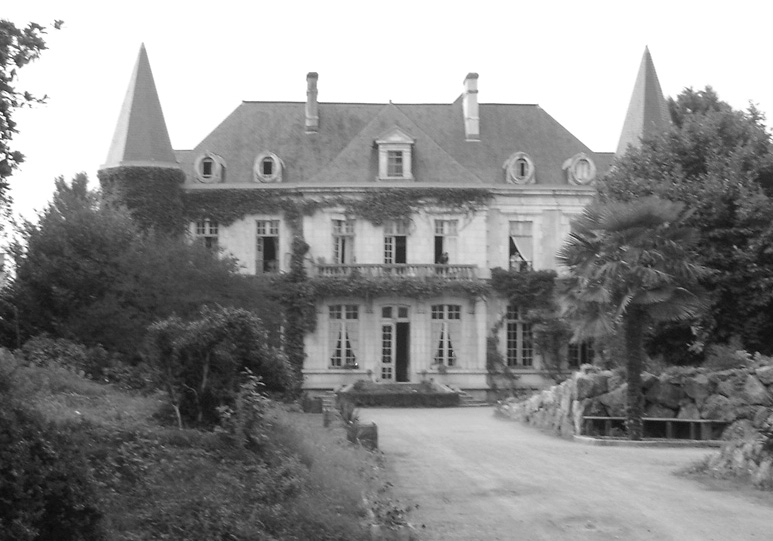 Finally, the breakthrough came with the seemingly miraculous encounter with a kind woman who owned a hotel on the coast of Spain. She offered them an old run-down chateau in southern France that belonged to her family. The price was out of their reach, but she said the “little flock” could stay there as caretakers of the property until the family had to sell it. It was the perfect spot.
Finally, the breakthrough came with the seemingly miraculous encounter with a kind woman who owned a hotel on the coast of Spain. She offered them an old run-down chateau in southern France that belonged to her family. The price was out of their reach, but she said the “little flock” could stay there as caretakers of the property until the family had to sell it. It was the perfect spot.
When the time came for them to sell it, a couple of years later, the disciples in America couldn’t bear to see their friends in France wander about for another year, so they labored day and night to help come up with the money to buy the house. Just in time, the necessary money arrived in France and the community finally had a home of their own. Meanwhile, new disciples were being added to their number, not only from France, but also Germany, Spain, and amazingly, Australia.
Unplanned Expansion
It was evening and a young man had just bicycled past the old chateau in southern France when one of the disciples came running after him, wanting to know if he had a place to stay for the night. The young man was impressed with the man’s genuine hospitality and accepted his offer.
This man was only one of hundreds of guests who had spent the night at Tabitha’s Place, as the chateau was known. But he was different from most because he was an Australian. He stayed, and eventually he went with others back to his native land. The Community in Vermont sent some of their best disciples with him to bring their life to Australia.
Meanwhile, several Canadians had learned of the Vermont Community and gone to visit there numerous times. Over the course of several weeks they considered the uncompromising message that they had heard, and finally decided to pay the cost of becoming disciples. Jean quit his job as a machinist, Denis stopped selling pharmaceuticals, David gave Air Canada notice that he would no longer pilot their planes, and Richard resigned from his position as chief accountant for a multi-national corporation. But none of them, except possibly Richard, whose wife was a U.S. citizen, could live in Vermont. So, in spite of many needs at home, the disciples in Vermont sent some of their most responsible members to Canada to help establish a community there.
For many years Bob, whose missionary parents had raised him in Brazil, had expressed a deep desire that the Brazilian people would hear the same message he had heard. Since he had become one of the Community’s most responsible leaders, there had always been a great need for him in America. But finally the Community realized they would be selfish if they kept him any longer and willingly let him go where the burden of his heart led him.
And so it went. Often because of difficult circumstances, and always at great personal cost, disciples were sent out to establish communities. But that, after all, was the foundation they had been on from the beginning: meeting the pressing need, giving out of what sustained them, doing whatever love demanded. They hadn’t sat down and planned out how to spread their beliefs or their lifestyle. They had certainly never intended to become a worldwide network. Nevertheless, by 1990, Communities had been established in four countries besides the U.S., several were going in the New England area, and one had been founded in the Midwest. By the year 2000, Communities had been added in Spain, Germany, Argentina, and England, and others had been established in the Midwestern U.S., with outposts on the West Coast and in the South.
The Restoration of All Things
Just as they had never intended to become a worldwide movement, the Community had also never imagined themselves to be the fulfillment of Biblical prophecy. But over the years it had gradually become clear that a restoration was taking place, and that they were living at a very significant time in history.
In the 1970’s the disciples had sensed in their guts that there was more to following the Savior than going to church. As they tried to pursue their desire to live a life pleasing to their Savior, they began to see things in the Bible that confirmed them. The accounts they read of the early Church portrayed people who lived a radical life of self-sacrificing love for one another and were different from the society around them. It was all too obvious that such a life was missing from the Christian Churches of the twentieth century. The reason was fairly obvious, too. There was no radical difference between churchgoers and non-churchgoers because there was no authoritative message being proclaimed that told people what God wanted them to do.
The message that the first disciples had heard called them to abandon their fishing nets and tax booths and give away their personal possessions. They had been commanded to sever their ties with any family members who opposed their devotion to the cause. The apostle Paul had even renounced his training as a Biblical scholar. But modern Christianity did not preach such “hard sayings.” Instead, it intellectually dissected the words of Messiah and rationalized away the need to obey them.
It wasn’t hard for the Communities in Tennessee and Vermont to see why that authoritative message was missing in modern times. A person would have to consistently live that life of self-sacrifice and care himself before he would have the authority to call others to obey. This, then, became a major focus for the Community in the 1970’s: being obedient to the message they had received, “cleaning up their own back yard,” so to speak, before trying to preach to the world around them.
During the 1980’s the Community continued to be fascinated with the Biblical record of the early disciples. Gradually it dawned on them what the first Church had been — not just a religion, but a nation (1 Peter 2:9). That nation had been known as the Commonwealth of Israel (Ephesians 2:12). It had been made up of priests (each one a representative of God on earth) and had possessed a culture. Piece by piece, the puzzle began to take shape. There had been a radical separation between the Church and the world in the first century and there had been a very good reason for it. The nations of the world functioned on the basis of Natural Law — the things that all men knew in their consciences to be true and right — but the priesthood had a higher law and greater accountability. As the Community studied the history and prophecies of the Old Testament, passages from the New Testament became much clearer. Living according to Natural Law was not bad, and God had an eternal reward for all who struggled to do right. But good morals alone could not accomplish the purpose of God on earth. Before Messiah would be able to return to the earth to establish His kingdom, there would have to be a people, separate from the nations of the world, who would live their lives obeying His commands. Matthew 24:14 and 21:43 were very clear on this point.
By the close of the 1980’s, though, it became obvious that this holy nation would not even be able to exist on the earth apart from the influence of righteous men in government — men who would uphold freedom of religion and other basic human rights.
As the Communities entered the 1990’s they began gathering every morning and evening to pray for the rulers of the nations in which they dwelt. At the same time, their message became much more sharply focused. They gained more understanding about the ways in which society was violating “natural law” — to the point of calling evil good and good evil. It was becoming obvious that the time-honored ideals of the hard-working man, the submissive wife, and respectful children were under attack. Men were striving for positions where they could make the most money with the least sweat possible. Women were demanding at least a 50-50 partnership where there was no acknowledged head. Children were increasingly being left to themselves to choose their own course and form their own values. Truly this was the time prophesied of in Psalm 11:3 — “If the foundations are destroyed, what can the righteous do?”
Community members felt a growing urgency to let people know about the good, clean life their Savior had given them. In addition to passing out literature at public events and backpacking in pairs across the countryside to share their message, the Communities established a toll-free number and later a website where people with questions could find answers. They stepped up production of literature, calling their main publication The Twelve Tribes Freepaper.
At the same time, their culture as a priesthood was becoming more clearly defined. Representatives from the various communities gathered for meetings to discuss such issues as health, nutrition, music, and dance. Regular workshops were established to share new songs and dances created by Community members. Gifted writers and teachers spent countless hours producing stories and developing curriculum to boost the education of children in the Community. Various dramatic productions were written and staged locally, and several communities cooperated in taking plays on tour to numerous towns throughout the northeast, as well as Washington, DC. Individual communities began holding weekly festivals, with plans for monthly regional festivals and seasonal festivals in the future.
As the twentieth century drew to a close, various Biblical prophecies stood out to the disciples. Isaiah 49:6 spoke of the “raising up of the tribes of Jacob to be a light to the nations so that salvation could reach to the ends of the earth.” It was becoming clear that salvation reaching the ends of the earth (which Matthew 24:14 said must happen in order for Messiah to return and bring about the end of the age) depended on a nation composed of tribes. These tribes, they understood, would not be the natural descendants of Jacob, but a spiritual Commonwealth of Israel, such as Ephesians 2:12 spoke of, each tribe being the disciples in a geographical area, responsible to live a life that would be a light to the people around them. It would be restored gradually. The commonwealth of the first century fell away from their simple devotion to Messiah and degenerated into a mere religious institution, hopelessly divided and unrecognizable in comparison to the life of the first disciples. But now, in the prophesied restoration of all things (Mark 9:12), household by household and community by community, they were becoming united together and blossoming again into a spiritual nation of twelve tribes.
This was their future, the disciples realized, if they proved worthy of it, but many movements had come and gone in the last nineteen centuries, and none had recaptured the fervor of the first century disciples, much less spread it to the ends of the earth. Always there had been selfish motives, factions, corruption, and compromise. Never had there been a people such as Daniel 2:34,44 described — like “a stone hewn from the mountain of the world without human hands.” But there has always been very impressive human effort involved, in the form of charismatic speakers, great displays of architectural genius, and profound doctrinal “truths” that left the average person feeling small and unspiritual. And when those failed, the Church often called on the military might of the nations to advance her agenda. But the Stone Kingdom of Daniel’s prophecy could only be established through love, bonded together by a deep affection based on the sacrifices that they made for each other, in response to the One who gave everything for them.
And so the history of our Twelve Tribes, the Commonwealth of Israel, as a modern movement has reached a critical point. There are communities being raised up in twelve geographical areas, and many tried and true men and women who have been disciples for decades. A rich culture is emerging in our midst. We have a clear vision of our prophetic destiny and we are learning to turn our hearts to our children in order that they could follow us in the way of our God (Genesis 18:19; Malachi 4:5-6).
But we face a great test. Will we remain true to the original revelation that Gene Spriggs had concerning John 15:5, “Apart from Me you can do nothing”? The challenge is to rely on the Spirit of Love, and not on our own natural abilities, so that we will not fall prey to the pride, selfish desires, and compromise that have caused every movement of the last two millennia to fail. Everything — quite literally everything — depends on this.

